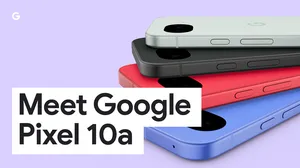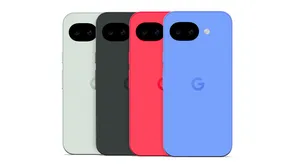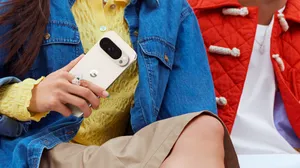Four new ways we’re partnering with the disability community
Our commitment to disability inclusion and accessibility doesn’t stop with our products. We believe in supporting people with disabilities across all sectors and industries. Today, we’re sharing some details on new product and education updates, as well as a broader look at how we’re working with the disability community to make the world a more equitable place.
Introducing Google’s Rising Influencers with Disabilities Fellowship
For many in the disability community, a lack of available resources can often act as a barrier to being able to create that sense of belonging online. We’ve found that by sharing stories with others, people have the power to create community, help others feel seen and spark meaningful change. That is why we decided to create the Google Rising Influencer with Disabilities (GRID) program — a new six-month fellowship designed with and for creators with disabilities.
GRID includes fifteen fellows from across the U.S. and Canada. The program will cover key skills for digital creators, lessons from industry thought leaders, and provide direct connection to Google product teams. The programming for fellows will also be further supported with mentorship from six accomplished influencers with disabilities. We’re excited to continue learning from and with the fellows in this program, and we can’t wait to showcase what they’re working on over the next several months.
Partnering with the U.S. Association of Blind Athletes (USABA)
In a welcome trend, disability representation is on the rise in professional sports and Google Pixel is continuing to raise awareness by partnering with the U.S. Association for Blind Athletes. This year, we’ll provide Pixel phones, watches, earbuds, and tablets along with a Google Fi Wireless plan to select blind and low-vision athletes in the USABA Sport Ambassador Program. The program is made up of Paralympians and national team athletes from sports as wide ranging as goalball and blind soccer to track and field and triathlon.
A team photo of USABA's athletes, including Kevin Orcel, Cheyenne Meyer, Christian King, Ricky Castaneda (front row), Tyler Merren (back row), Eliana Mason, Lex Gillette, Mindy Cook

Ambassadors have been trained on Pixel’s accessibility features, including Guided Frame, TalkBack, and Magnifier, and have also participated in a collaborative design session with our Pixel team. Throughout the partnership, they will offer feedback and insights as Trusted Tester of our features, shaped by their personal experiences using the devices. As USABA’s official Global Technology Partner, we look forward to working with these athletes during a major year in their professional journey and continuing to collaborate with them on ways to improve our products for both athletes and people with disabilities.
A new Google accessibility discovery center opens in Zurich
Last year, we opened our first Google Accessibility Discovery Centre in London to act as a community space and touchpoint to build more accessible technology. Since then, we’ve expanded to open a second center in Dublin, and we’re excited to announce a third center in Zurich. Our goal for this space is for it to become a place where people can learn more about our latest accessibility products and our teams can partner even more closely with the disability community.
Expanding access to CS Education for students with disabilities
Students everywhere should have equitable access to computer science education. Today, we’re launching a $5 million fund to support nonprofits who are making coding and computer science education more accessible to students with disabilities. This investment will provide funding to organizations leveraging Google's Blockly open source library to develop and implement inclusive tools and curricula. The initiative aims to empower developers in education technology organizations by helping them create inclusive learning experiences. By helping tailor experiences to students with diverse learning styles and abilities, these nonprofits can support the important work to ensure all students can participate fully in the digital world and gain foundational computing skills.
Blockly's accessibility features include a keyboard navigation plugin to support users with visual, mobility, or other disabilities who cannot use a mouse, as well as four theme plugins that help with common types of visual impairments including color blindness and low vision. While we continue to invest in this area for Blockly, we're also working closely with the Department of Education in Maryland, whose leadership in accessible education policies served as an inspiration for this fund, and nonprofits in the space, so that we can create a future where every learner can thrive in the digital age. Sign up on our website to stay updated about the fund and receive a notification when applications are available.









